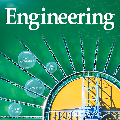Recent work demonstrated great promise in the idea of orchestrating collaborations between LLMs, human input, and various tools to address the inherent limitations of LLMs. We propose a novel perspective called semantic decoding, which frames these collaborative processes as optimization procedures in semantic space. Specifically, we conceptualize LLMs as semantic processors that manipulate meaningful pieces of information that we call semantic tokens (known thoughts). LLMs are among a large pool of other semantic processors, including humans and tools, such as search engines or code executors. Collectively, semantic processors engage in dynamic exchanges of semantic tokens to progressively construct high-utility outputs. We refer to these orchestrated interactions among semantic processors, optimizing and searching in semantic space, as semantic decoding algorithms. This concept draws a direct parallel to the well-studied problem of syntactic decoding, which involves crafting algorithms to best exploit auto-regressive language models for extracting high-utility sequences of syntactic tokens. By focusing on the semantic level and disregarding syntactic details, we gain a fresh perspective on the engineering of AI systems, enabling us to imagine systems with much greater complexity and capabilities. In this position paper, we formalize the transition from syntactic to semantic tokens as well as the analogy between syntactic and semantic decoding. Subsequently, we explore the possibilities of optimizing within the space of semantic tokens via semantic decoding algorithms. We conclude with a list of research opportunities and questions arising from this fresh perspective. The semantic decoding perspective offers a powerful abstraction for search and optimization directly in the space of meaningful concepts, with semantic tokens as the fundamental units of a new type of computation.
翻译:暂无翻译




